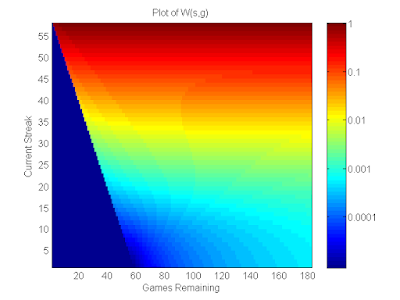The pace of progress in Artificial Intelligence is truly staggering. Every few months, it feels like we see new capabilities emerge that were recently considered science fiction. As someone fascinated by problem-solving, particularly in mathematics, I'm always curious to see how the latest AI models stack up against complex reasoning tasks. Recently, I got the chance to try out Google's Gemini 2.5 Pro Experimental, one of their most advanced models currently under development.
Naturally, I decided to put it through its paces using some of the very math puzzles I shared on this blog back in 2016. These aren't your standard textbook arithmetic problems; many require a degree of logical deduction, abstract thinking, or creative strategy – the kind of things that have traditionally been challenging for computers.
I fed the problems to Gemini 2.5 Pro Experimental yesterday, and honestly, I was blown away by the results. It solved all of them. Even more impressively, it nailed almost every single one on the very first try. There was just one puzzle, where its initial approach wasn't quite right, but it successfully solved it on the second attempt after simply responding "that's not correct, please try again". Seeing an AI model chew through these non-trivial problems, which often stump clever humans, with such relative ease and accuracy felt like witnessing a significant leap forward in machine intelligence. It wasn't just about getting the answer; it was about the apparent reasoning process (even if simulated) that led to it.
This experience resonates strongly with my own evolving use of AI over the past year or so. Initially, I primarily leaned on AI tools for assistance with writing tasks or basic code completion – helpful, but supplementary. Now, however, I find myself leveraging models like Gemini for much more challenging coding problems and complex reasoning tasks. It has rapidly transitioned from a novelty to an essential part of my daily workflow, significantly boosting my productivity. While I currently use AI to augment my capabilities, seeing its rapidly increasing power makes it feel less unreasonable to imagine a future, perhaps not so distant, where AI could potentially handle my entire role.
This personal reflection naturally leads to broader questions about the societal impacts of such capable technology. Advanced AI models like Gemini 2.5 Pro Experimental, demonstrating strong performance across diverse and complex domains, are clearly moving beyond niche applications. This brings the conversation about AI's effect on the workforce into sharp focus. Will these tools primarily augment human capabilities, taking over tedious tasks, enhancing productivity, and freeing us up for more creative or strategic work? Or will they increasingly replace roles currently performed by humans? The reality is likely to be complex and multifaceted. Some reports suggest significant portions of current work tasks could be automated or assisted by AI, potentially displacing jobs in areas like content writing, data analysis, or even aspects of legal work. However, the same technological wave is expected to create entirely new job categories focused on developing, managing, and collaborating with AI systems. The transition period, its speed, and how the benefits (and disruptions) are distributed across society remain significant uncertainties that society will have to grapple with and address through thoughtful consideration and proactive planning from individuals, businesses, and policymakers alike.
My little experiment with Gemini 2.5 Pro Experimental and some old math puzzles was just a small snapshot, but it powerfully illustrated the advanced reasoning abilities these models are starting to exhibit. Coupled with my own increasing reliance on AI for complex tasks, it underscores the incredible progress in the field. It leaves me both excited and contemplative about what comes next. What once seemed like distant future capabilities are arriving faster than many predicted.
NOTE: This blog post was written with the help of Gemini 2.5 Pro Experimental.

Comments
Post a Comment